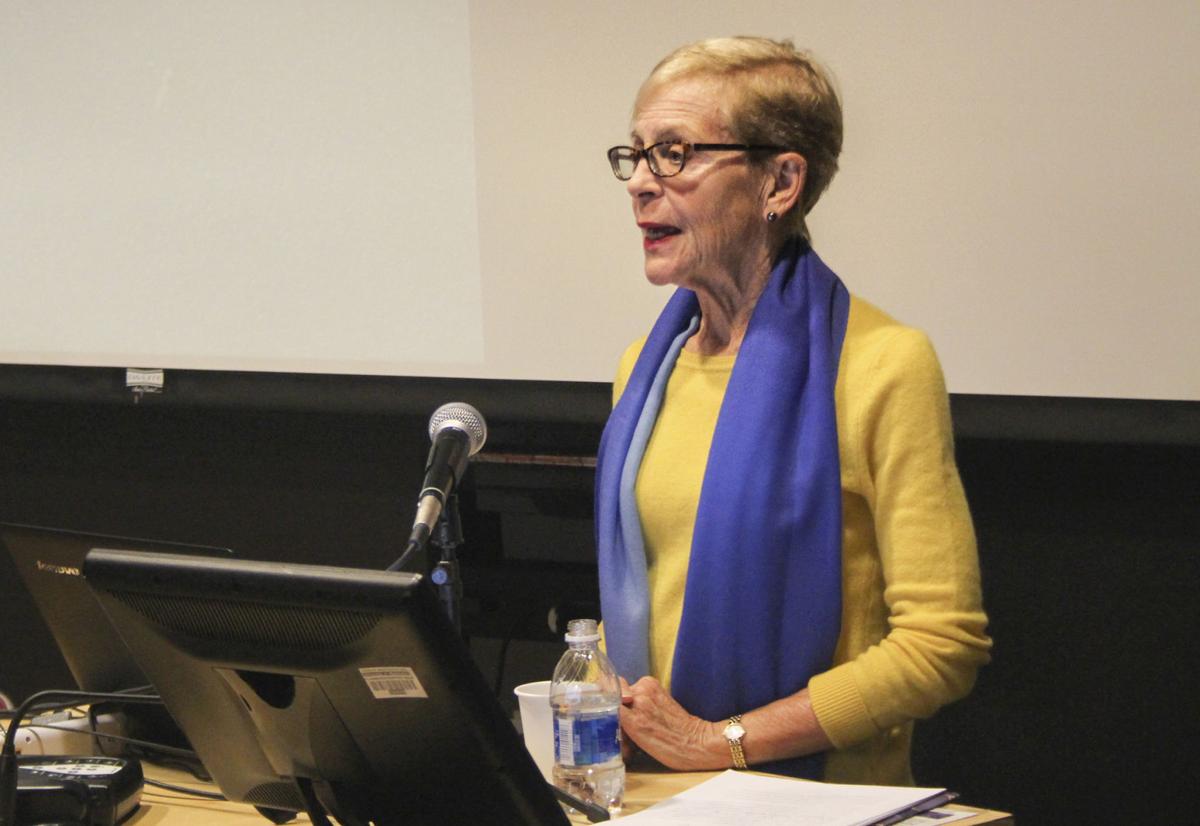
' “Liberty,” designed on canvas by artist Wissam Al-Jazaeri, depicts the form of a man’s head, gashed at the neck, with a bird flying to his left. The painting makes reference to the gruesome slaughtering of singer Ibrahim Qashoush after he sang before a protest of thousands as part of the 2011 Arab Spring.
In a Tuesday night talk in Thomson Hall — entitled “Creativity, Resilience and the Syrian Revolution” — Miriam Cooke, a professor of Arab Cultures at Duke University, discussed how the Syrian people have responded to their country’s crisis through art.
“In Syria, a country cowered into silence for 40 years, a revolution broke out in March of 2011,” Cooke said. “In digital and plastic arts, in video and still images in film, in novels and short stories, organic intellectuals inside and outside their country are crafting works that emerge out of the revolution that insist on its persistence as a revolution and point to a new future.”
Throughout her talk, Cooke displayed and spoke on numerous works by artists, including Ali Ferzat’s “Finger to Bashar.” Of the many satirical cartoons by Ferzat, this one came after he was beaten up, had his fingers smashed, and was hospitalized by attackers. The drawing depicts Ferzat lying miserably, bandaged and immobile in a hospital bed, with his middle finger stuck in the air.
Cooke described how intrigued she was by the various forms of art, including graffiti, rap, and hip hop, emerging out of Syria in 2011, which led her to write on the cultural production of the Arab Spring. But within three months of the revolution’s beginning, she became hesitant to continue her work. After seeing the art emerging from Syria in a time of turmoil, she drew connections between artists under dictatorship and artwork of the revolution.
“I started then to look at what was happening in Syria, and realized that in some ways I had to make a connection between my earlier work,” Cooke said, “and the writers and filmmakers who were saying ‘I want the world to know 50 years from now that there were people that stood up to the dictator no matter what the cost.’” '
No comments:
Post a Comment